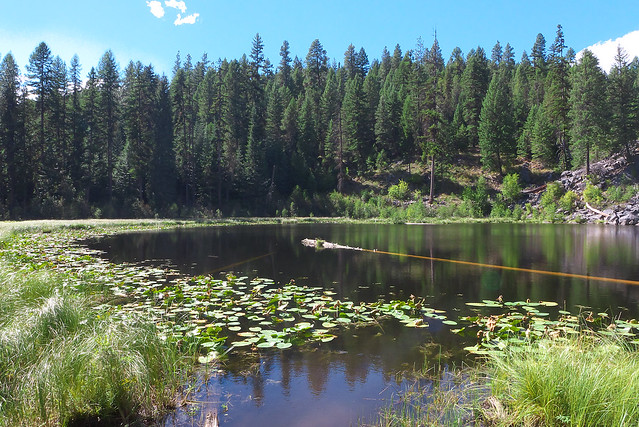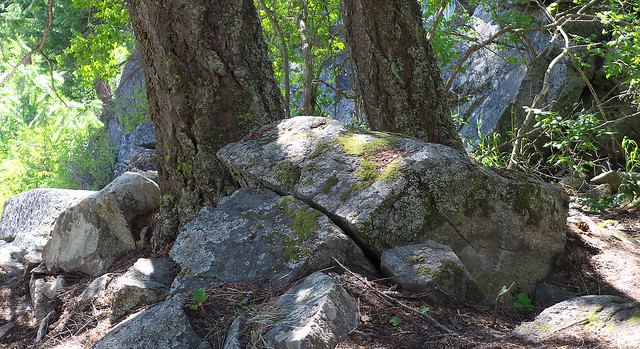Why do we fail our children? Why?
Bring them life, then make them cry?
Take their love of all, that innocence,
twist it into hate that defies all sense
and watch their smiles,
with classmates, die.
—First posted on Facebook, 12/15/12
Occasional observations, rants, and reviews by an engineer, inventor, retired patent agent, recovering fundamentalist, amateur evolutionist, and now manager of a little publishing company. And no doubt more stuff to come.
Why do we fail our children? Why?
Bring them life, then make them cry?
Take their love of all, that innocence,
twist it into hate that defies all sense
and watch their smiles,
with classmates, die.
—First posted on Facebook, 12/15/12

Three years ago, I attended the Christmas program of my younger children’s elementary school, my head swirling with cognitive dissonance over what I was reading in the Bible and church publications. One of the issues that stood out in my mind, as it does for so many troubled believers, was Conservative Laestadianism’s outrageous exclusivity claims. (These claims are also made by the OALC, FALC, and IALC, who all point their bony fingers of condemnation at each other along with the LLC/SRK.)
Here it is in a nutshell: The church’s membership comprises about 0.002% of the world’s population. Everyone else who is mentally competent and has achieved some vaguely defined age of accountability it consigns to an eternity of screaming torture, a fate that eventually will be shared by almost all of the billion or so of the world’s children.
There are even questions about many of those within the official membership nowadays. I suspect the old guard in the SRK and LLC have been waiting quite a while now for another “heresy” to come along and clean house, freeing them from having to deal with those annoying liberals, part-timers, and questioners.
That evening I sat with my wife and watched our kids up on stage, saying their pieces and singing their little songs among the beautiful children and parents of a rural, simple, and fairly religious community. As it is most everywhere else in the U.S. and the world, none of them has ever heard of Conservative Laestadianism. The closest most will ever come to a member of “God’s Kingdom” is in their cars as they drive through the area where most of our old congregation’s members live, on their way to do some shopping in town.
Here’s what I wrote when we got home. It is reproduced from my book (§4.2.1), as is some of the commentary that follows.
The Christmas Program
Children stand on stage singing Christmas carols, twirling their curled hair and smiling shyly out at the faces of their parents. They have learned words that tell of Wishing us a Merry Christmas, of a little Town named Bethlehem, of a jolly old man named Santa Claus. In their classes they are also learning about one plus one and the alphabet, and even about bugs and plants.
But something they will never learn is that they are damned. Neither they nor their beaming parents will ever hear about a small, nondescript church 20 miles away that is attended by a few hundred children and their parents who look exactly like them and their parents, but who are (largely) not damned. They will grow up to embrace various beliefs. Most will confess a belief in the saving powers of the Jesus they are singing about (more or less) in their caroling. Some will be more enthusiastic about that belief than others, and some of them will come to reject the whole notion entirely. But all of them are damned, every single now-innocent one of them, because they will never enter that small, nondescript church and accept its particular doctrine of salvation.
Perhaps as their adult forms are writhing in unspeakable, eternal agony someday, many of them will ask, what about the Jesus we believed in? Didn’t we accept him as our personal savior? Didn’t we read the Bible that spoke of him, which said that God loved the whole world so much that he gave his only begotten Son, that all men might have eternal life?
Perhaps one of them, surprised that the particular Jesus doctrine he so piously confessed and taught was to no avail, will scream in his agony, “Why? Why? Why? Now I find out that there were just a few hundred people for hundreds of miles around me who made it to adulthood and then to heaven? And because none of these people ever had occasion to speak to me (including two parents who were apparently in the audience at my first grade Christmas program but never could or did say anything to me), I am going to be tortured forever? How could I have believed in a doctrine I’d never even heard of? If you are a loving God, why did you hide it from me? Why did you give me instead a lifetime of false consolation about Jesus that would prove utterly worthless to the fate of my soul?”
Laestadian preachers provide the flock with reminders of their special status in just about every sermon, by expressing praise and thanksgiving to God for allowing them the incredible good fortune to be one of “God’s children,” to have the “precious gift of living faith,” or even (in an acknowledgment of how almost everybody comes to be a Laestadian) to be “born into a Christian home.” And it is equally emphasized by references to the world and how lost and sadly ignorant it is of “God’s Kingdom.”
That can sound comforting to the believer who has spent a lifetime hearing nothing but the preaching of his or her own childhood faith, and has managed to avoid giving too much thought to the fate of those “unbelievers” and “heretics” whose beliefs appear only as simplistic caricatures in the sermons. But outside the walls of Zion, beyond earshot of the self-assured, droning piety, everyone can see the absurdity and cruelty of a God who would create a world full of people and hide the knowledge of salvation from almost all of them.
Pointing out this sort of thing earns one the title of a “false prophet,” a label now being heard from LLC ministers in their advent-season apocalyptic sermons. Their urgent preaching, the private phone calls and messages of concern, the meetings now being conducted to address questions with nothing but the same old slogans and non-answers, are all an effort to deflect attention from the inconvenient facts.
And one of them is this: When a sect of a hundred thousand members maintains a doctrine of exclusivity in a world of seven billion, it is chaining itself to a rotting corpse. No amount of literary perfume, no appeal to tradition or piety, can disguise the stench of the horror it drags along with it everywhere it goes.
What contortions these poor preachers have to undergo to defend the indefensible! The allegiance demanded by this sect claiming to be the only true Lutheran faith–contrary to the teachings of Luther himself (§5.2)–forces them to reduce Christ’s suffering and death to near irrelevance, a mere collection of useless stories for everybody outside the walls of the little churches in which they preach. Worse, the consequence of their microscopically limited gospel is that most of Christianity is just a cruel joke being played on an unsuspecting world. The Laestadian God has created humankind with the full knowledge that he is going to condemn almost all of them, sending them to their graves damned by the false consolation of at best a “dead” Christianity.
And what about Jesus’ promise that the seekers would find, that those who knock will find the door opened? Well, when someone is truly seeking, God will lead them to find “the Kingdom.” That was the explanation by one hapless preacher (§4.9.3) in a sermon where he also candidly acknowledged the reaction of outsiders to these claims: “You really think this is the only place where forgiveness is found? Do you really think that you are the only group that is traveling to heaven, the only group of believers? Do you really believe that?” (§4.2.1). Actually, not all of them; perhaps not even most of the people sitting in the pews on a given Sunday.
Like me and the bulk of the congregations they preach to, most of the guys sitting behind the pulpits spent their childhoods attending Sunday school, church, discussions, and church camps where the doctrines they now convey were hammered into their brains, along with the expectation that these matters are not to be questioned.
When they misquote John 6:68 (it says, “Lord, to whom shall we go?”, they prefer “where else would we go”), they are doing so out of habit and sincerity. Where else would they go, indeed? It is inconceivable for most Laestadians to go anywhere else. Not just because of the indoctrination they received with its eternal promises and threats, but also the social environment to which they are attached–huge families, lifelong friends, familiar settings–as firmly and comfortably as barnacles to rock.
Our mental limitations prevent us from accepting our mental limitations,” writes Robert Burton, M.D., in his thought-provoking book, On Being Certain: Believing You Are Right Even When You’re Not. He explains the power of “deep down conviction,” that “feeling of knowing” we have about cherished convictions that enables us to shake off seemingly any contradictory facts that threaten them.
Does your stomach clench in a knot when reading or hearing viewpoints contrary to your own? That is a threat response. Your brain has invested a lot of time, if not effort, toward establishing sets of strong beliefs about many important things–religion of course, but also politics, relationships, your own special place in the world–and it wants to defend them.
Intellectually, you may recognize that the objective truth is more important than your established viewpoints, but there is far more lurking within our brains than what we have conscious awareness of. Burton: “Because our minds have evolved to operate largely outside of consciousness, it may not be possible to gain direct access to unconscious processing.”
Consciously or otherwise, we just don’t want to lose the sense of purpose and meaning we get from our deepest convictions. We “are nearly always aware of the sickening feeling when we don’t possess them,” he says. “This isn’t an intellectual misapprehension; it is a gut sense of disorientation and a loss of personal direction. Rarely are brute mental effort and self-help pep talks able to rekindle the missing feeling.”
I have experienced this not just with religion but also in other aspects of life. One example is my urgent advocacy to family and friends several years ago of “peak oil” apocalypticism. On sites like The Oil Drum and Energy Bulletin (recently renamed), I read for hours about limited petroleum supplies, about the prospect of declining yields from the big oil fields of Mexico and Saudi Arabia. The facts seemed to fully support the sense of panic that was fostered by eloquent authors like James Howard Kunstler (The Long Emergency), and I wondered why people weren’t talking about it, doing something.
Well, many of those facts still seem compelling, but we are still here, driving our cars, buying container loads of cheap plastic trinkets from China, with no dystopian nightmare in sight. New extraction technologies have boosted the yields of old fields and there are drilling rigs in places that were once thought unpromising. The number of barrels pumped per day is at an all-time high. The environmental travesties of oil sand mining and the BP oil spill have barely put a bubble in the relentless flow of crude.
I look at all this and wonder, was I so wrong? Was I led along a path of alarmism by people who I thought knew what they were talking about? Or should I still cling to the belief, slightly adjusting aspects of it to maintain the general idea? The temptation is also there to restrict my reading to those who continue beating the drum for my erstwhile beliefs (and there is no shortage of such writers), but I have learned all too well that a painful truth is ultimately far more useful than a comforting falsehood.
My answer for now is not to have a clear answer, and that is a difficult state for the human brain to maintain. It craves decisiveness, the neat packaging of convictions in a box, a satisfying end to the difficult work of questioning. The brain’s structure and the reinforcement it experiences over a lifetime makes us highly value the “feeling of knowing,” Burton says. Any search for objective truth must override our innate bias, and often causes us pain in the process–cognitive dissonance, hurt to our self image, sometimes even social rejection. Small wonder that we so often choose to shrug our shoulders and plod onward down the well-trodden path.
She is shopping in Friday Harbor, and I have escaped the tedium of feigning interest in trinkets, returning on my own to the pebbly beach on the island’s south end. The little three-wheeled “Scoot Coupe” gives a bracing ride at the speed limit, a bit more than twice the top speed that was so sternly warned about in the rental instructions. Slow down a bit into the turns, and then let the pavement fly on by, inches away, at fifty tree-lined miles per glorious hour of summertime afternoon.
The green canopy gives way to an open vault of flawless blue, the evergreen scent fading into the fresh air. Up and over the ridge we go, this ridiculous machine and I, and then descend to the parking lot by the beach. I check the time; just a few minutes before it’s time to head back, turn this thing in, and meet her at the ferry. Better make them count.
I walk over the driftwood logs and rocks again, sniffing at the breeze and taking it all in. As everywhere, there is life poking through, a variety of humble plants elbowing their way between pebbles, leaves waxy and small grabbing their share of the sunshine. We are all just doing the same thing in our own way, sprouting briefly in the sun.
Now the water’s edge stretches out before me, a vaguely defined interface between the rocky shore and glassy swells. They break on the pebbles in miniature, vigorous from the breeze but stunted from the short fetch between all these islands. Tiny oceans spawning baby surf, leaving the pebbles clean, round, and visible beneath water without much foam. It all looks and smells so clean, even the green hills of shoreline faded into the miles on both sides, its houses and No Trespassing signs rendered invisible by the benign kindness of distance.
It is, for this moment, a world primeval and pure. I kneel, putting my hand into the coldness and movement of the water, picking up a few of the rounded stones. Ebb and flow, wind and wave. Summer sun falling, falling on warm skin. And all of it suffused with the contented glow of fatigue, the sense of a day well spent.
The moment is nearly over. I drink in the beauty through every pore, my eyes roaming over every detail, my ears recording the splash and scratch of water over rock. A deep breath: This is now, and in seconds will be then. But it is enough.

She walks proud and confident
to the university a mile away
and a life much farther
from the thousands of years
that once shackled
and diminished her,
used her womb and its entrance,
and cast the rest aside.
So many ghostly grandmothers
stand watching behind her,
this woman they could never be,
their sufferings and labor quiet
now, as then.
I watch, too; I am a man, after all.
But my admiration is not just visual.
It is also for the unrestrained poise,
the casual steps of feet set free.
She bears a pack full of books.
Not the child of sex feared or forced,
nor a load of wood and water,
nor the silken yoke of helplessness.

She is a woman: young, learning, capable.
A fellow human with her place to be.
She will vote, write, and decide,
perhaps even fight in a war for me.
And yet, I notice, smiling,
she still has chosen,
this woman unbound,
to let the scent of flowers linger in her wake.
—First posted on Facebook, 10/18/12.
Thanks to Alyssa and Jasmine for permission to use their Facebook profile pics, and congratulations to their mothers for setting great examples. They’re brilliant women, all of them.
Do you have two legs at your command? Walk through forests and neighborhoods, leap and run for joy. Climb stairs with loads of laundry as some climb mountains with backpacks and dreams.
Arms and fingers that bend and move to your wishes? Feel what they touch, note the textures of the world around you. Caress and sense, support, sustain. Is this intricate mechanism of muscle and tendons, bone and joints best purposed for a clenched fist or an outstretched hand of friendship?
 |
Do your eyes convey the light and vision of what’s around you? Look, then, and see. Find the beauty in every scene and face. Know that billions of neurons are locked in complex arrays of interconnection to interpret what your eyes have chosen to look upon. Make it worthy.
Do you have an ear—perhaps two—to hear what life has to say? Listen to the voices soft and loud, to the whispers of the wind, to the music in all its forms. A quiet place reveals rustles and creaks of life’s underside; all need not be loud and overbearing.
Think of the delicate hairs inside your ear, swaying in time to their own sections of the received symphony of sound–some slowly to discern low hums and groaning strings, others quivering fast to bring you alarms and put sharp edges on the music. Your brain performs wonders of spectral analysis to perceive the ambiance of nature and expressions of art and love. Yet it will strain with equal diligence to bring rants of hate and ignorance into your mind, should you choose to hear them instead. So choose wisely.
 |
| Catching Rays [Flickr page] |
Countless wonders are being enacted within to bring each day of life to you. The food you’ve just eaten has finished giving your tastes a savory reward for bothering to have a meal. Now it’s grinding into mash within your stomach, in readiness for its true molecular payload—to enrich your blood. Hidden red rivers carry tiny cargo-loads of oxygen and nourishment to the farthest reaches of your toes and brain, returning darkened and ready for the next run, in an endless cycle.
All the while, nerves blaze with impulses electrical, then chemical, then electrical again. The consciousness that you call yourself perceives only the tiniest fraction, the gurgles and pangs of hunger, the racing pulse of a new love or race run well. But it is there, all of it, just beneath the surface, for you.
You do not have a life; you are a life. The blueprint of your every cell carries the wisdom of eons. You are the final cut, the compilation of research done by untold painful experiments in life and death of long-departed faceless ancestors and many more others not so lucky as to be your ancestors.
You are a life finally able to contemplate itself. In that you are privileged beyond all other creatures, with a wisdom beyond measure. Live, then, and be alive.

Today I have seen water lilies in still waters, and lichens pebbling the surface of dry rocks nearby. I watched the flurry of infant butterflies, and the running footsteps of my children. I sat in the shade of trees a century old and smelled their sap mixed with the snuffy spice of a fresh-growing meadow. A centipede crossed a patch of dirt, and a little boy warned me not to touch it. Then he ran to chase grazing cows, heedless of their size.

Warmth enfolded me from all sides. Retreating from the grandeur of the evergreens, I lay on the meadow-grass, yet found nature scaled down to meet me there. Endless forms most beautiful, as Darwin said, even in the varied tufts of foreground green. All struggling to grow and bud and then die in a single summer’s sun, while patient giants above us worked quietly for another season’s needles, sap, and cones.

Reflecting, now, I feel the earth cool and the scents fade into the recesses of the night. The Milky Way traces its arc above the silhouettes of trees that stand expectant for the life-driving light of tomorrow’s sun. I watch meteor trails, and wonder at the beauty of this day, of this one life among so much, so many. All blazing, brief sensations that then pass into memory.

In the ghostly glow of thousand-year old starlight photons, I finally walk home. Now, without my witness, the earth will continue hurtling through a comet’s wake, spinning, until it turns my land again towards the sun. The universe will spark and strain and glow without me, until I awaken, and dance with it once again.

A sea of humanity
washing past me in wave after wave
of endless variety:
ages, colors, styles of dress,
silently borne collections
of thoughts, loves, and creeds.
For once, at last,
they do not break
on the rocks of my judgments.
My mind does not thunder
with the force of their numbers
against my incompatible notions
of what they should be.
No spray of protests flies upwards
from the question once asked continually,
“Why not them, rather than just me?”
Sailing, now, in a sea of humanity
where the waves just move on,
untroubled by the presence
of a mind set free.
According to John 18:37-38, Jesus told Pilate that the reason he came into the world was to “bear witness unto the truth.” As the story goes, Pilate replied dismissively with the rhetorical question, “What is truth?” Such evasions aside, truth is simply this: the inescapable reality that is established by a certain framework of indisputable facts. Whether Pilate liked it or not–whether you or your preachers like it or not–there is such a thing as truth, and you cannot exempt yourself from its rules.
If the facts are inconsistent with a claim I am making, then that claim is not true. If the claim is not true, then it is false, and so is every other claim that depends on it. It’s really that simple.

If I am trying to sell you a used car, it had better start when you turn the key. My statement that it “runs fine” will be proved false otherwise, and you will have little patience with my excuses. That spectacular failure of my claim to conform with the facts will make you inclined to distrust everything else I try to tell you about the car.
There is no way for me to get around this problem. A protest that your “carnal understanding” cannot comprehend the qualities of the car would make me look just plain crazy. So would the assertion that it is only your “wrongful pride” that keeps you from truly considering the qualities of my non-functioning car. Your money would remain in your purse or back pocket as you move slowly away.
It is a testament to the power of religion in the human psyche that it can exempt itself from the evidentiary standards of even a used car salesman. The same question you would be a fool for not asking–Is it true?–in the one case is considered downright offensive in the other.
When you give the analogy just a little space to play out, you quickly realize how sad the whole spectacle really is: The car does not only fail to start, but by any objective indication seems not to exist at all. The salesman cannot get his story straight about what kind of car it is, claims it is the only car you could ever possibly own, and threatens you with sadistic tortures if you decide not to buy it. And if you walk down the street, you will find hundreds of equally impassioned salespeople selling their own invisible cars, all claiming to have the only one that actually exists.

“In matters of faith and salvation, however, we must set our carnal mind and understanding aside.” So claims an article “The Gospel Is Not Earthly Wisdom,” published in the April 2012 issue of the Voice of Zion newspaper of the Laestadian Lutheran Church (LLC). The images you see throughout this posting are scanned excerpts from the article. Its author cites various well-worn Bible passages to make his warnings against “rational understanding.” The old citations are thrown at the reader one after another, wrapped in such familiarity and piety that one can easily disregard the human hand of the article’s author in selecting them. But selected they were–from a sprawling, contradictory hodgepodge of all-too-human ancient thought that has been compiled over many centuries, argued about, imperfectly copied and translated, and finally transformed into an object of veneration as “God’s Word” (§4.3.4).
The Bible texts themselves are seldom read in their full context. Instead, the pious eye hastily glances over the atrocities and outrages, the inconsistencies and failed prophecies, to find familiar passages that will shore up a doctrinal conclusion that was predetermined before the book was ever opened. As with the used car with all its dings and scratches, a sale is most likely if you don’t look too closely at what you’re buying.

To expose the illusion and show the quote-mining subjectivity for what it is, my caption to each scanned excerpt is another passage from the very same book of the Bible that a Laestadian preacher would never find occasion to cite. And this provides only a small example of the selective reading that goes on every Sunday, in every Voice of Zion article, in every discussion about “faith matters.” The Word itself, it turns out, needs quite a bit of earthly wisdom from Laestadian editors to stay on message.
The writers and expounders of scripture protest that what they are selecting and saying is actually what God wants to say. As the article puts it, God “has revealed the mysteries of faith through His Spirit in His kingdom.” It is latter-day Gnosticism, with a privileged few sharing “esoteric knowledge” among themselves.
Within the sacred enclave, curious transformations take place in language. Acknowledging the possibility of error is no longer humility but dangerous pride. Childhood is associated not with its natural curiosity and search for knowledge, but a passivity and resignation more suited to those with one foot in the grave. All is done in the service of “God’s kingdom, the pillar and ground of truth” where, in a bitter irony, the very meaning of truth is cast aside. Instead, as Sam Harris puts it, faith “obscures uncertainty where uncertainty manifestly exists, allowing the unknown, the implausible, and the patently false to achieve primacy over the facts.”

Never mind why the omnipotent God “who will have all men to be saved, and to come unto the knowledge of the truth” (1 Tim. 2:4) would provide his spiritual guidance to 0.002% of the world’s population within just one of many groups claiming to have the One True path to salvation (§4.2.2). Never mind how that claim of sectarian exclusivity conflicts with the teachings of Martin Luther, whom the group claims as its most prominent spiritual founder (§5.2). Never mind why the Spirit would allow abusive practices to dominate the group’s operations for over a decade (§4.6.4, §4.10.2).
No, you are not supposed to give any consideration to these and the literally hundreds of other issues with “the simple doctrine of faith.” The salesman is talking, and he doesn’t want to be interrupted by your impertinent complaint that the engine won’t start.
“The truth shall make you free,” Jesus is reported to have said (John 8:32). Yes, it will–if only you let it.
Another article from the April 2012 Voice of Zion describes how the preachers at the LLC’s Winter Services lamented “‘attacks against God’s kingdom,’ questioning the validity of God’s Word in today’s world.”
An Examination of the Pearl, free online version with various sections linked with the “§” hyperlinks above. The section on reason (§4.5.4) is relevant to this posting as a whole.
Gnosticism entry on Wikipedia.
Harris, Sam. 2005. The End of Faith. New York: W.W. Norton and Co.
New American Standard Bible. 1995. La Habra, CA: The Lockman Foundation.